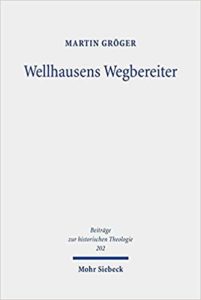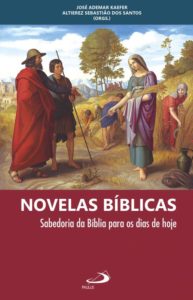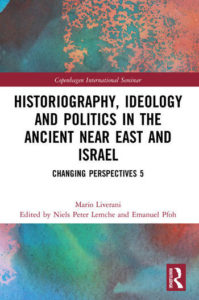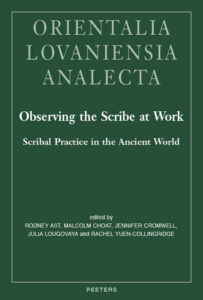GRÖGER, M. Wellhausens Wegbereiter. Tübingen: Mohr Siebeck, 2021, 429 p. – ISBN 9783161606625.
As investigações de Julius Wellhausen (1844-1918) no Antigo Testamento, por mais engenhosas que sejam em seu projeto básico, foram de muitas maneiras dependentes dos grandes precursores de sua disciplina. Em seu estudo, Martin Gröger apresenta sete desses pioneiros: Wilhelm Martin Leberecht de Wette, Leopold George, Heinrich Ewald, Karl Heinrich Graf, Wilhelm Vatke, Abraham Kuenen e Abraham Geiger. Martin Gröger reconstrói seus fundamentos teológico-filosóficos e mostra as consequências das respectivas ‘hermenêuticas historiográficas’ para a interpretação do Antigo Testamento.
dos grandes precursores de sua disciplina. Em seu estudo, Martin Gröger apresenta sete desses pioneiros: Wilhelm Martin Leberecht de Wette, Leopold George, Heinrich Ewald, Karl Heinrich Graf, Wilhelm Vatke, Abraham Kuenen e Abraham Geiger. Martin Gröger reconstrói seus fundamentos teológico-filosóficos e mostra as consequências das respectivas ‘hermenêuticas historiográficas’ para a interpretação do Antigo Testamento.
Julius Wellhausens (1844-1918) Untersuchungen zum Alten Testament, so genial sie in den konstruktiven Grundlinien sind, waren in vielerlei Hinsicht von den grossen Vorlaufern seiner Disziplin abhangig. Martin Groger stellt in seiner Untersuchung sieben dieser Wegbereiter vor: Wilhelm Martin Leberecht de Wette und seinen historisch-asthetischen Zugang, Leopold Georges Fest- und Kulttheorie, Heinrich Ewalds alttestamentliche Literaturgeschichte, Karl Heinrich Grafs Wende zur redaktionsgeschichtlichen Fragestellung, Wilhelm Vatkes spekulative Methode, Abraham Kuenens Versachlichung der Religionsgeschichtsschreibung und schliesslich Abraham Geigers Hinterfragung christlicher Deutungsstereotypen aus der Position des liberalen Judentums. Martin Groger rekonstruiert ihre theologisch-philosophischen Grundlagen und zeigt die Konsequenzen der jeweiligen ‘historiographischen Hermeneutik’ fur die Interpretation des Alten Testaments auf. Diese Arbeit wurde mit dem Promotionspreis der Friedrich-Schiller-Universitat Jena 2017 ausgezeichnet.
Martin Gröger Geboren 1978; Studium der Ev. Theologie in Jena, München, Leipzig, Stellenbosch und Halle (Saale); 2007–14 Inspektor der Stiftung Schlesisches Konvikt Halle, Wohngemeinschaft für Studierende der Kirchenmusik und Theologie; 2014–18 Vikar der Evangelischen Kirche in Mitteldeutschland in Köln-Nippes; 2016 Promotion in Jena; seit 2018 Pfarrer in Köln.



